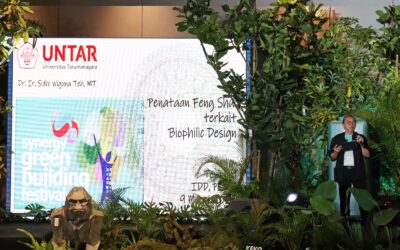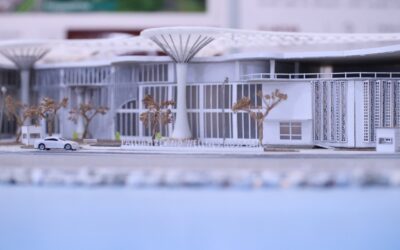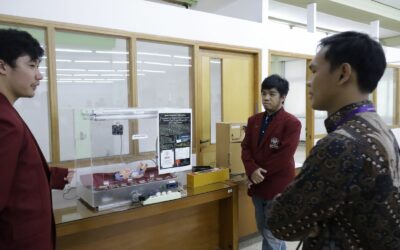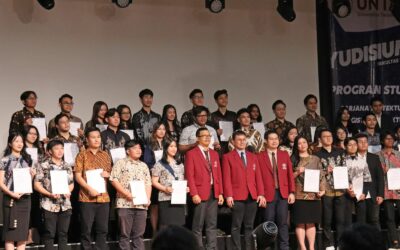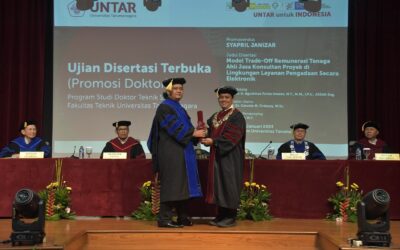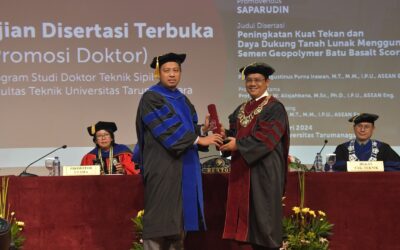Bachelor of Engineering Study Program
Creating Professional and Entrepreneurial Industrial Leaders
Fields of Expertise
∎ Ergonomy and Manufacturing System
∎ Industrial Management and System
Career Path
1. Operations Manager
2. Industrial Product Development Manager
3. QC/QA Manager
4. Production & Inventory Manager
5. Supply Chain & Logistics Manager
Bachelor of Industrial Engineering Study Program is Very Good-accredited and recognized by IABEE (Indonesian Accreditation Board for Engineering Education. This program can be completed within 7 semesters with Ergonomy and Industrial Engineering Management as its leading field of study.
This program is designed on Outcome Based Education (OBE), students are taught to have experiences, knowledge, and skills in the field of Industrial Engineering through various academic and non-academic activities, with emphasize on creativity and innovation. Students’ abilities are introduced to industrial and research field through various activities such as industrial design project, industrial internship, and science competition such as Industrial Engineering and Operations Management (IEOM) Competition.
Regular programs are available in morning and evening sessions. Implementing Blended Learning System, cross-program studies through Independent Learning Independent Campus (MBKM) program, Recognition of Prior Learning program is also available for students with work experiences and academic or non-academic achievements.
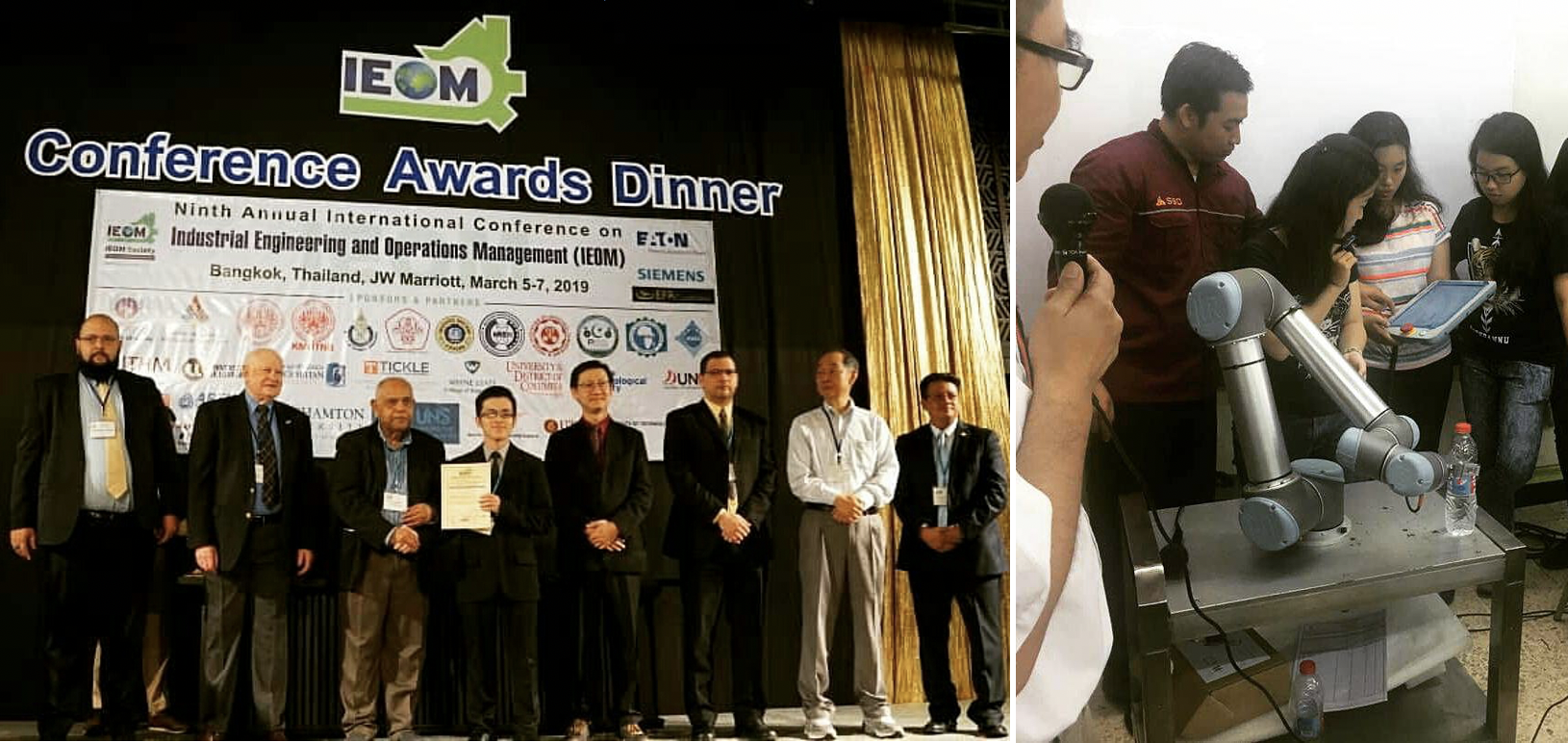
Featured Courses
| Course | Description | |
|---|---|---|
| Supply Chain Engineering | This course provides an in-depth understanding of supply chain management (SCM) theoretically and practically, which covers; Introduction to SCM; Supply Chain Strategy; Designing New Products or Services from an SCM Perspective; Supply Chain Network; Demand Management; Managing Inventory in the Supply Chain; Procurement Management; Transportation and Distribution Management; Bullwhip Effect; Lean Concept in Supply Chain Management; SCM digitalization; Supply Chain Management Performance Measurement; and also Supply Chain Sustainability. | |
| Lean Six Sigma | This course studies and provides an in-depth understanding of the lean production concept approach, lean pillars, types of waste, lean tools & techniques in application in the manufacturing and service industries, lean organization case studies, six sigma concept, zero defect approach, six sigma tools & techniques, and methodology DMAIC in six sigma, six sigma case studies, readiness of an organization to implement LSS, and problem solving with the lean six sigma approach. | |
| Maintenance Management | This course provides an in-depth understanding of maintenance management theoretically and practically, which covers; introduction to industrial maintenance systems, overall equipment effectiveness (OEE) measurement, reliability engineering concepts, seven big losses, determining critical parts or components, failure mode and effect analysis (FMEA), total productive maintenance (TPM), 5S in maintenance management, autonomous maintenance , planned maintenance, corrective maintenance, MTBF and MTTR analysis, one point lesson (OPL), effective equipment maintenance model using big data and AI, maintenance cost and budget, maintenance scorecard (MSC). | |
| Occupational Health and Safety | This course studies comprehensively technical factors: work equipment, machines, safety equipment and protective equipment, fire hazards, electrical hazards and hazardous materials; non-technical factors: human; environmental factors: cleanliness, vibration, lighting, dust, health and work environment, management of work-related stress, prevention and control of work accidents, legal provisions for occupational health and safety, case studies in various industrial sectors in Indonesia. |
Facilities
News & Achievements
Architects Play an Important Role in Creating a Better Quality of Life and Environment
Dr. Ir. Sidhi Wiguna Teh, M.T. was a guest speaker at the Synergy Green Building Festival at Indonesia Design District PIK 2, Tangerang, Saturday (11/3). Synergy Green Building Festival is an event that brings together renowned providers of building land, art,...
Public Expose 8.36 Showcases 14 Best Student Works
The Public Expose 8.36 exhibition themed "Empathic Architecture" opened on Monday (26/2) and closed on Wednesday (28/2) at Campus I Untar. This year, 14 best final project designs of students of Untar's Architecture Engineering Undergraduate Program were exhibited for...
Electrical Engineering Student Exhibition Provides Insight into Technology Development
Electrical Engineering Undergraduate Study Program of Faculty of Engineering (FT) Untar held an exhibition of students' thesis work at Electronics Lab, Campus I Untar. The event was opened by the Head of Electrical Engineering Undergraduate Program Yohanes Calvinus,...
Dean of FT Reminds Alumni to Have a Strong Relationship
Yudisium of Faculty of Engineering (FT) odd semester 2023/2024 declared the graduation of Bachelor, Master, and Doctoral students. The event was held at the Auditorium of Campus I Untar, Tuesday (23/1). In his speech, Dean of FT Untar Harto Tanujaya, S.T., M.T., Ph.D....
Research on Trade-off Model of Project Consultant Remuneration, Syapril Janizar Earns Doctoral Degree
Syapril Janizar officially holds the title of Doctor of Civil Engineering in the Open Session of Civil Engineering Doctoral Study Program of Faculty of Engineering (FT) Untar at Campus I Untar, Monday (22/1). Syapril successfully defended his dissertation entitled...
Member of DPRD Merauke Earns Doctoral Degree at Untar
Saparudin earned the 75th doctorate degree in Civil Engineering of Untar, after defending his dissertation entitled "Increasing the Compressive Strength and Supportability of Soft Soil Using Scoria Basalt Geopolymer Cement", Monday (22/1) at Campus I Untar....

